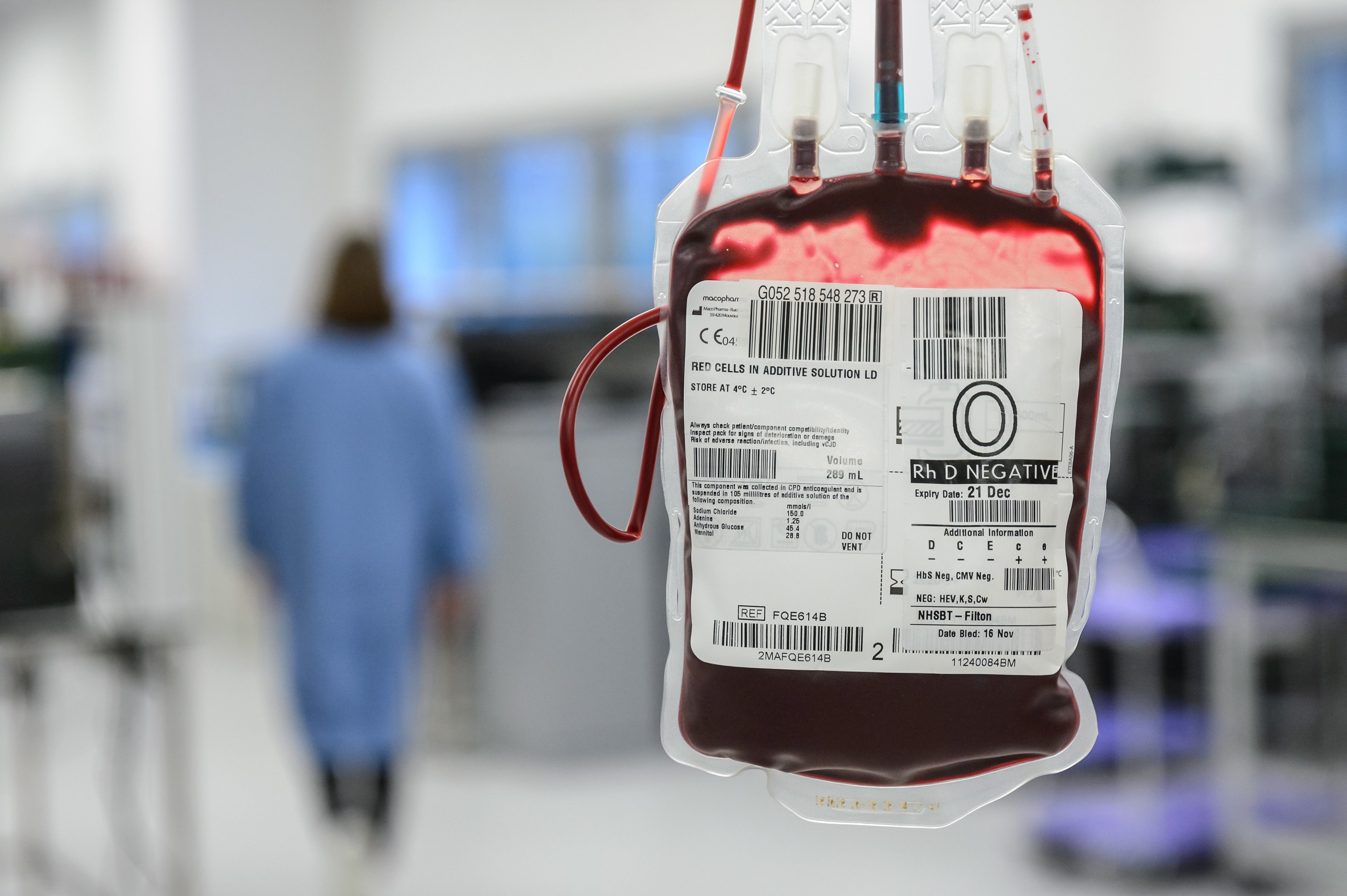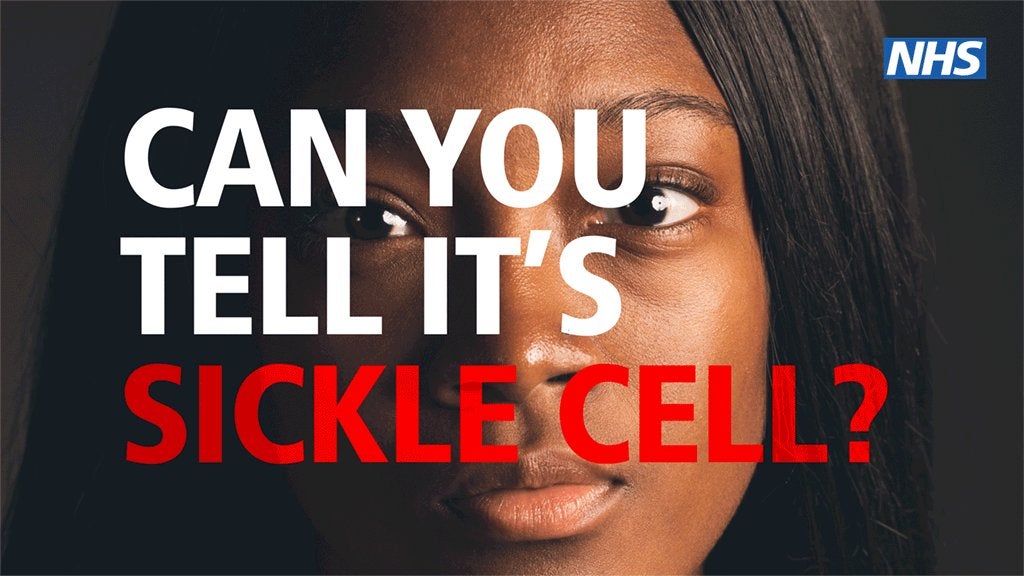World Sickle Cell Day: NHS rolls out new treatment amid first national campaign launch
Automated red blood cell exchange, a procedure that involves the swapping of unhealthy cells with normal ones, will be deployed more widely across hospitals in England.

Your support helps us to tell the story
From reproductive rights to climate change to Big Tech, The Independent is on the ground when the story is developing. Whether it's investigating the financials of Elon Musk's pro-Trump PAC or producing our latest documentary, 'The A Word', which shines a light on the American women fighting for reproductive rights, we know how important it is to parse out the facts from the messaging.
At such a critical moment in US history, we need reporters on the ground. Your donation allows us to keep sending journalists to speak to both sides of the story.
The Independent is trusted by Americans across the entire political spectrum. And unlike many other quality news outlets, we choose not to lock Americans out of our reporting and analysis with paywalls. We believe quality journalism should be available to everyone, paid for by those who can afford it.
Your support makes all the difference.Patients and campaigners have hailed a new NHS roll-out of treatment for sickle cell patients in a move geared towards transforming lives, as the nation observes World Sickle Cell Day.
Automated red blood cell exchange, a procedure that involves the swapping of unhealthy cells with normal ones, will be deployed more widely across hospitals in England, enabling patients to have improved access to this life-changing treatment.
Sickle cell disease, which mainly affects Black people, is a group of inherited red blood cell disorders that can result in unbearable pain and the need for emergency hospitalisation. Exchanging the cells will result in less of this discomfort for those who live with the illness.
Up until now, there hasn’t been enough money for the treatment to be made consistently available through the NHS, so people have had to travel long distances for treatment, subject to availability.
It’s not uncommon for the Spectra Optia Apheresis System, which administers the treatment, to be used in the few hospitals in the country that have more money.
Kent-based Bola Jibodu, 41, was one of the first patients to have received the exchange after she fell gravely ill with pneumonia during an episode five years ago.
“Back then, your condition had to be extremely severe to access the treatment,” she told The Independent, adding that the treatment “has dramatically improved her quality of life and it has kept her out of hospital, allowing her to spend more time with her family and to do the things she loves”.
“The benefit is just unending; it’s amazing. It has the potential to change, for the better, the lifestyle for every individual who is able to go on this treatment,” the mother of two, who was diagnosed with the illness aged 10 months, said.
“I can say since I started the procedure, I haven’t had any major crises or hospital admissions. I only go nowadays to get the treatment then I’m out.”
“It’s almost like going to fill your car with petrol; once I’ve done that, I’m able to go out and about,” she added with laughter.
“I can go on holiday – something I have previously been scared to do for fear of lack of access to treatment in our chosen destination. My life has improved, I have more energy; I can plan for my life and look after my children and family.”

“With sickle cell, it’s not just the pain that affects you,” Mrs Jibodu continued.
“It knocks your confidence, you’re constantly sick; it makes it difficult to support a family, keep a job, maintain studies. It affects the people around you who are constantly worried about, and sometimes having to care for, you. I hope it helps so many other people, the way it has helped me.”
The main difference between an exchange treatment and a standard blood transfusion procedure is that it enables a balance of iron and quick reduction of sickle cells, within two-three hours, which cause excruciating crises. The announcement of the treatment roll-out comes after the NHS unveiled the first new treatment for the disease in 20 years back in October.
As the nation acknowledges World Sickle Cell Day, NHS England has also launched a campaign to boost awareness of the genetic disorder, which affects thousands across the UK.
The campaign, dubbed “Can You Tell It’s Sickle Cell?”, is aimed at increasing awareness of the key signs and symptoms of sickle cell disorder – which disproportionately affects people from Black African and Caribbean backgrounds – among emergency care staff, carers and the wider public.
A new NHS training programme will also help staff better understand the condition, and how to care for patients during their greatest hour of need.
Dr Bola Owolabi, NHS England director of health inequalities, said: “We know that sickle cell disease is a debilitating illness that thousands of people live with but has historically been poorly understood, which is why the NHS is launching this brand new campaign and asking, Can You Tell It’s Sickle Cell?
“It is vital that we continue to tackle healthcare inequalities head-on, and this means improving care and experience of NHS services, access to the latest, cutting-edge treatments, and proactively raising awareness of conditions such as sickle cell disorder that disproportionately affect some of our communities.”

Existing standards of care for sickle cell disease vary by region in England and often come with additional health complications that lead to higher costs and poor health outcomes.
There are currently more than 12,000 patients receiving treatment in 68 different NHS hospitals; some 40 per cent of those patients are under 20 years old.
The head of the NHS, Amanda Pritchard, criticised the “appalling” treatment of some sickle cell patients during a conference on Wednesday after one asked her: “If I was white, would I be treated like this?”
A groundbreaking parliamentary report recently found that racism in the NHS is placing sickle cell patients’ lives at risk.
John James, CEO at Sickle Cell Society, said: “It is really great to see the first NHS national campaign for sickle cell disorder go live. Sickle cell disorder is a debilitating condition affecting individuals and families.
“We need to significantly raise awareness of this disorder. Only through increased awareness and education amongst healthcare professionals, and the general public, will we start to see improvement in patient experiences and ultimately their health outcomes.”



Join our commenting forum
Join thought-provoking conversations, follow other Independent readers and see their replies
Comments